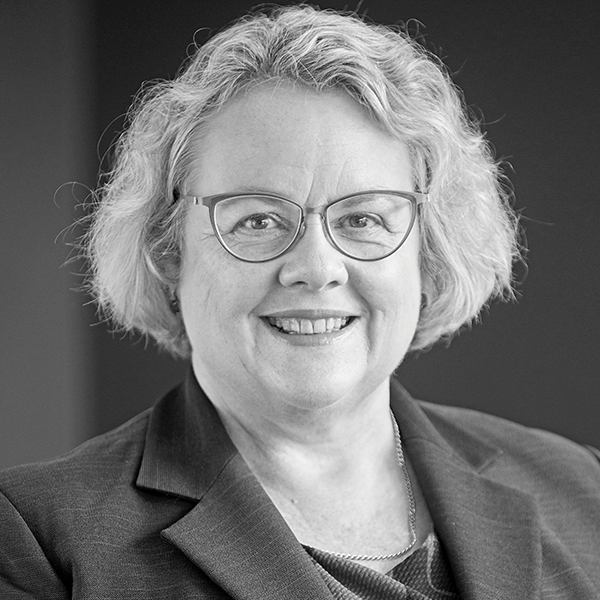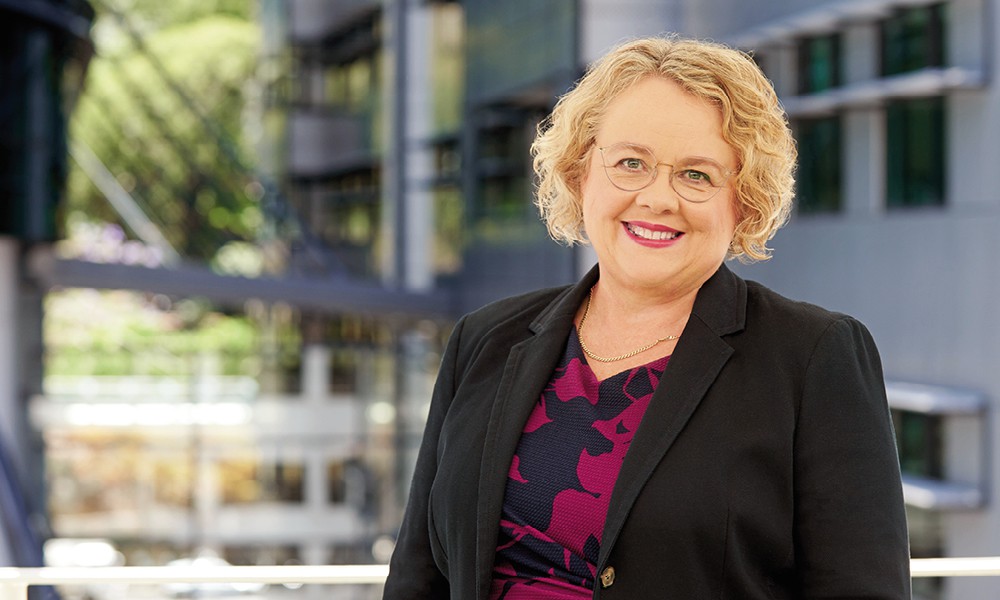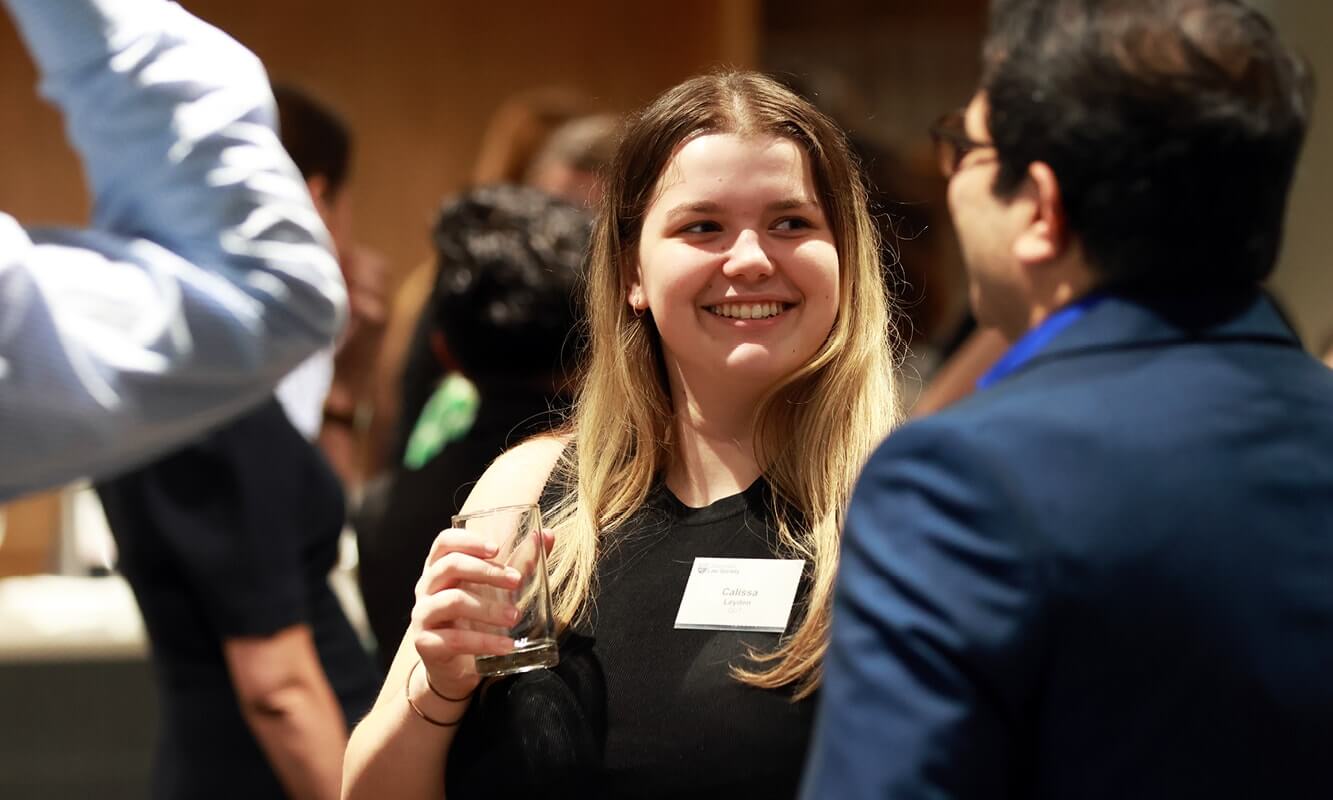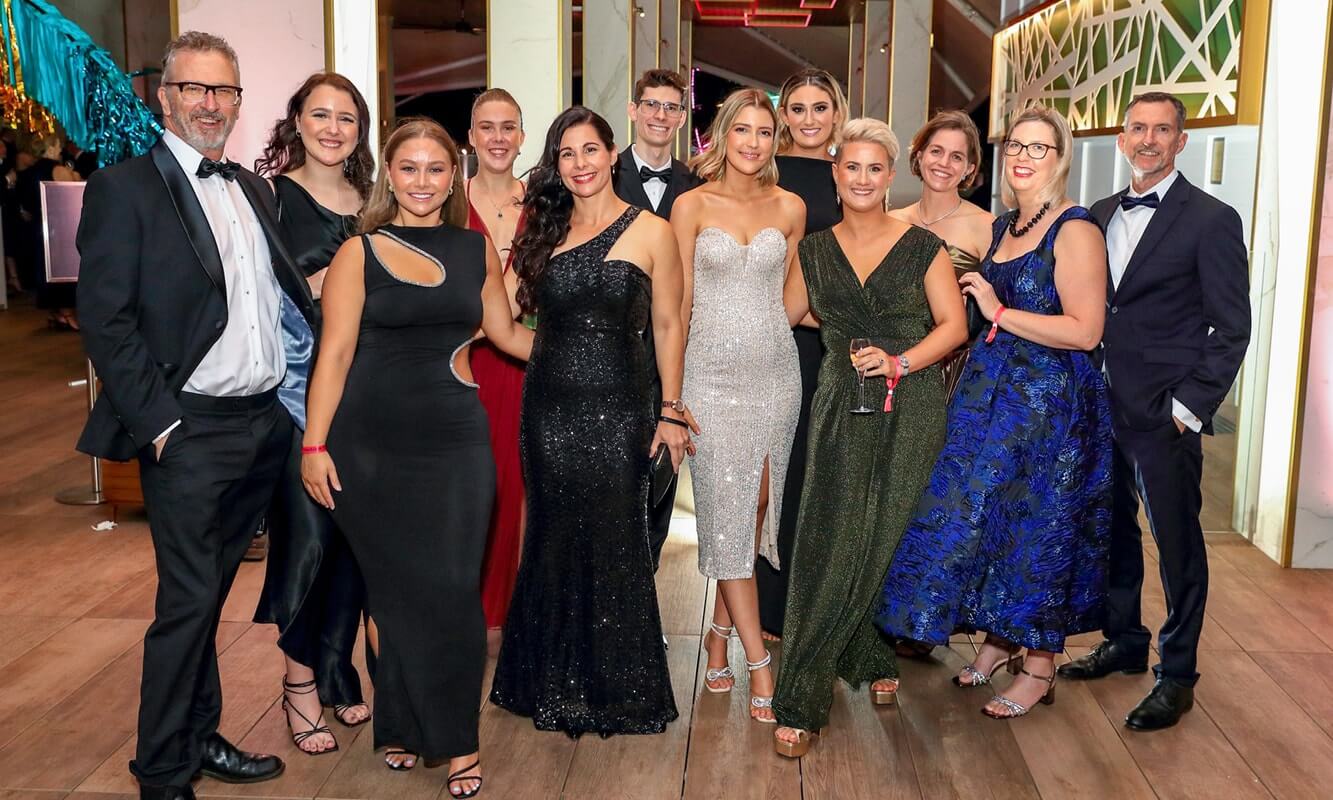If life is like a box of chocolates, we solicitors are the ones reading the selection list on the bottom of the box so we know what we’re gonna get next.
Being President of QLS for a year is different – there’s no selection list. On any given day, you don’t get to choose what you’re gonna get next.
It’s May and I’ve only managed to write one previous President’s update. I’ve made lots of speeches, written lots of emails, attended lots of meetings and spoken to lots of people. But I have been a poor correspondent.
So it’s past time to write again to you all about what has been occupying my time and attention.
Events
The first quarter of the year at QLS is all about events: New Year Drinks, Legal Profession Dinner, Symposium. I was very pleased to be able to attend the Townsville District Law Association evening to welcome new members to the profession, and the Gold Coast DLA Meet the Judges breakfast.
The pre-Easter lockdown prevented visits to Maroochydore for their compulsory CPD event, although thanks to extraordinary efforts by QLS events staff and the Sunshine Coast DLA we were able to switch (within three hours of the lockdown announcement) to a virtual format so the show could go on. I missed the view of the ocean, but the important work of getting compulsory CPD points was done.
Lockdown also prevented a visit to Rockhampton for the opening of the new Federal Circuit Court and to Townsville for welcome ceremony for Judge Chris Bowrey in the Federal Circuit Court. I was sorry to miss these events, particularly the welcome for Judge Bowrey, who has been a great contributor to QLS and the profession.
There have been three other ceremonial events at the courts – welcoming Deputy Chief Magistrate Gett, Magistrate Warrington in Cairns, and farewelling Appeal Justice Philippides. If you’ve not ever attended a ceremonial event other than your own admission, I encourage you to do so some time. They are formal, collegiate and celebratory – and sometimes even better than that. World renowned musician and didgeridoo player William Barton gave a very special performance in honour of Justice Philippides.
QLS hosted a meeting of law societies from around the country (with most attending in person) and the directors’ meeting of the Law Council of Australia. I also attended the Opening of the Law Year in Hobart. These meetings with interstate colleagues are invaluable as we are dealing with many of the same issues. Concrete outcomes so far are that other law societies are licensing our training package on combatting sexual harassment in the profession, and we are working with the Law Society of New South Wales so can again run the See a Solicitor First campaign later in the year.
On Thursday last week I attended a smaller, but very significant event. One of our colleagues, John Walker celebrated 60 years in practice. I am not aware of anyone else reaching this milestone (but if I am wrong please let me know). It was a real joy to spend time with John and hear his recollections of a life in practice and service to the community.
Council
Council has had three meetings already this year. One important task was to set the fees for new financial year. With gross fee income for Lexon-insured practices increasing in the 2020 calendar year (against all expectations this time last year) Council considered the prudent decision was to return all fees to the 2019 rates with a small increase to account for CPI. This allows us to start on building back the reserves that were used to support the profession in 2020. We know that the impact of the pandemic has not been evenly felt, and there is a process for hardship considerations on the membership fee if any members need that.
Executive Committee of Council
The Executive Committee of Council meets monthly, dealing with regulatory matters – decisions on practising certificates and external interventions in practices to protect trust property. Look out for our first publication in the next couple of weeks – ‘Notes from the Executive Committee’ – which will describe trends we are seeing in the matters that come before us, and highlight issues that practitioners should be aware of.
The courts
For some time, QLS has been advocating for a judicial commission in Queensland. In the absence of a judicial commission, on Friday, Chief Justice Holmes and I signed a protocol documenting the process for solicitors to raise concerns about the conduct of judges in court.
Any solicitor with a concern may contact the QLS President, who may then raise the issue with the Chief Justice. This has operated informally for some time, but is now clearly documented. I will be working on putting in place similar protocols with other courts.
QLS is also publishing a Guidance Statement about dealing with inappropriate judicial conduct which provides practical tips about how to deal with the difficult situation, for those subject to the conduct and bystanders.
The QLS President sits on the Judicial Appointments Panel for state courts, which has already convened several times this year. The discussions are, by necessity confidential, but I can say based on my experience, that the process works well.
First Nations focus
This morning (Tuesday) QLS hosted a panel discussion to mark the occasion of the 30th anniversary of the report of the Royal Commission into Aboriginal Deaths in Custody. It was a very powerful discussion, and I think everyone present gained new insights and understanding about the nature of the problem of over-representation of First Nations people in the criminal justice system. The session was recorded, and I encourage everyone to make the time to view it.
Policy
It has been a busy start to the policy year. QLS has been represented at four parliamentary committees already. A key focus for the next few months will be our ongoing advocacy to keep the beneficial changes that were implemented in response to COVID-19.
A key interest of mine is advocacy around the rates paid to solicitors for Legal Aid work. These rates are too low. The system depends on private solicitors doing the bulk of representation in legal aid matters, and it is not sustainable unless fair rates are paid for this work. As with all advocacy, compelling stories are important, so if you have a story about how the low rates paid for legal aid work are impacting your practice, please let me know.
Keeping in touch
I welcome hearing from members any time vial email at president@qls.com.au if there are any issues impacting on you or your practice that you think I need to be aware of.
Elizabeth Shearer
President, Queensland Law Society














2 Responses
A judicial commission is a must. Appointments must be seen to be meritorious and impartial by a commission tasked to select and to discipline appointees. Appointments made by Government on the recommendation of persons, which are not objectively independent, impact the principle of the separation of the three powers. All interest groups can be represented including the public through a lay member.
I accept it to be logical that experience as an advocate and application of the rules of evidence may better qualify barristers for appointment. If it is advocacy which is a qualifying criteria one observes that only a very small percentage of cases ever goes to trial. It is an unfortunate minority which ever becomes a litigant. If it is academic achievement alone, then one ought to consider that some time in the past the \ ‘English Law Society’s’ experience was that two thirds of the honors graduates became solicitors. If it is life’s experience that counts then competent experienced solicitors have much to contribute. It is not logical that lawyers are the smartest person in the room. It is not logical that a barrister per se is more likely to be appointed but that is what happens. It would be wrong wouldn’t it if Government were to make an appointment on its perception of where the appointees political allegiances lie. This issue will likely be explored one day by the fourth estate which should concern all of us. Many episodes of judicial misbehavior are not reported despite any protocol because it is not in the interest of the client or legal practitioner. An appropriately constituted judicial commission will likely alleviate to some extent the appointment of judiciary who are not suited to the office despite fitting criteria which those presently involved find compelling. Inapt behavior by inappropriate appointees occurs at the highest level. A commission will likely not resolve all issues but at least there will be an appearance of respectable objectivity but self interest groups should not dominate the appointment process. I most respectfully suggest that most competent and experienced practitioners will have examples of inappropriate conduct which was not addressed.
Concerning a proposed Judicial Commission, may I suggest a long term solution rather than a band aid.
If the respective Presidents of the QLS and Bar Association can agree on a ( objective) selection protocol for judicial appointments and have that legislated, then it would be more than likely the current problems will ultimately die a natural death.
The problems that the proponents of a Commission want addressed are mostly if not all, caused by the appointment process. By and large we do get it right in our country and my recent exposure to the patience, work rate and real care exhibited by Lapthorne J in the federal Court is a stunning example of how right we can be.